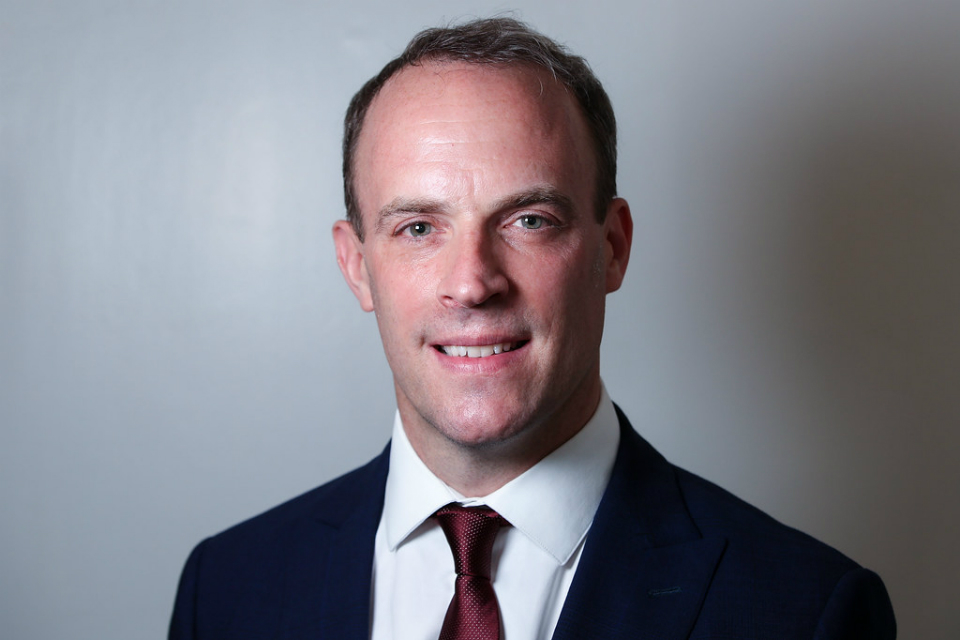Yemen needs international help to escape tragedy
Sweden, German and the UK jointly suggest how nations can work together to pull the country back from collapse.

This article was originally published in the Financial Times on 1 July.
After the Arab spring, it seemed that Yemen would follow a path of peaceful political change. Civil society blossomed, and Yemenis of all affiliations, including women and young people, took part in shaping the country’s future. Today, after six years of war, this hope has almost been extinguished. Yemen is on the brink of collapse.
Covid-19 is stretching the country’s fragile healthcare system to breaking point. According to modelling by the London School of Hygiene and Tropical Medicine, Yemen may have surpassed 1m Covid-19 cases last week and cases continue to rise rapidly.
We have a global responsibility to ease the suffering of the Yemeni people. We — the foreign ministers of Germany, Sweden and the UK — would like to share how we think the international community can contribute to peace.
First, a nationwide ceasefire and a political settlement remain Yemen’s best defence against the pandemic. Following UN secretary-general António Guterres’ call for a worldwide ceasefire in response to Covid-19, the Saudi-led coalition announced a unilateral ceasefire in April.
Unfortunately, the Houthis have not reciprocated and fighting has continued. The Houthis have launched ballistic missiles towards Saudi Arabia, including at civilian targets, as recently as last week, recklessly endangering civilian lives. There is no time for further delay as civilians continue to suffer and die. The international community must press all actors to accept the UN proposal for a ceasefire. This should be the start of a political process, and the full participation of women must be ensured.
Second, humanitarian assistance needs to be delivered to all Yemenis who need it. To do that, the UN urgently needs more funding. Together, our three countries recently pledged an additional $365m to support UN humanitarian work in Yemen this year. Other countries must step up and donate generously and quickly. We must also challenge any obstacles that continue to prevent humanitarian agencies from effectively operating in Yemen. This is particularly the case in northern areas of the country controlled by the Houthis. The Covid-19 response can only stand a chance if all Yemeni parties lift their restrictions on aid.
Third, we need to encourage implementation of existing agreements. This includes the Stockholm Agreement, which calls for a mutual withdrawal from the port city of Hodeidah, and the Riyadh Agreement. If they were properly implemented, the commitments previously agreed by the parties would bolster UN efforts to achieve comprehensive peace.
Fourth, for Yemen to effectively recover from Covid-19, its already fragile economy must be kept alive. The indirect consequences of coronavirus could be even more severe than the direct impact. In particular, Yemen’s partners need to support the government of Yemen to pay public sector salaries — not least for medical staff — and to implement urgent economic reforms.
Lastly, we expect full respect of international law, including humanitarian law and human rights, from all actors. All parties have to ensure civilians are protected in this cruel war. This includes protection for religious minorities, women, children, journalists and political prisoners. We call on the Houthis to implement their announcement to release members of the Baha’i faith. The supply of weapons to the Houthis, including weaponry of Iranian origin, is a violation of the UN arms embargo, as evidenced by the UN Panel of Experts, and only extends the conflict. This must stop.
We are ready to help once an agreement is reached to end the conflict and to reverse the fragmentation of the country. A united international community must stop those who seek to extend the conflict for their personal benefit. We envisage an agreement based on shared power, compromise, and the rule of law. Two of us represent member states of the EU and we encourage it to step up its role in Yemen.
The Yemen that emerges from a peace agreement needs to play a constructive and active role in the region — contributing to the security of its immediate neighbours, Saudi Arabia and Oman. Our three countries stand ready to assist Yemen’s transition into a positive force for regional security.
Under the cloud of Covid-19, Yemen is facing an enormous tragedy. It is high time the international community united in support of its people. Yemen could be transformed. Instead of being defined by suffering and as a threat to regional and international security, Yemen could become a model for other fragmented states in conflict and a catalyst for enhanced security in a region of divergent interests. We stand ready to work with and support Yemen to achieve these humanitarian and strategic goals.